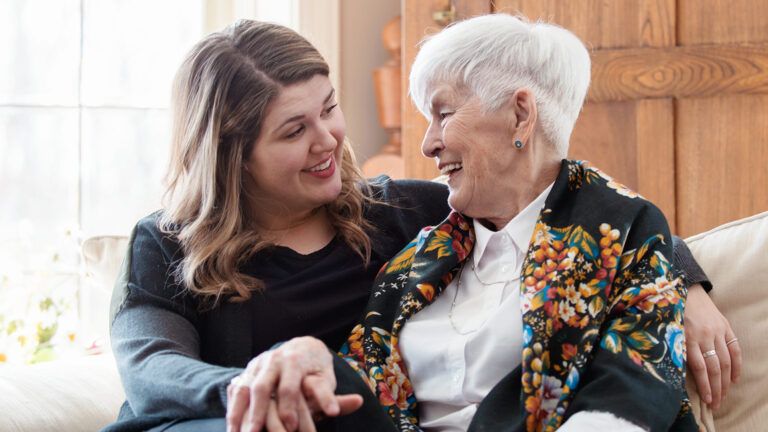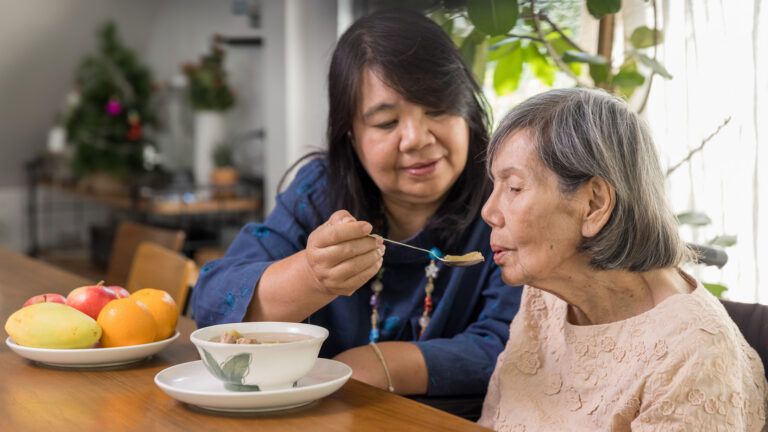Alice Eberhart-Wright is part of a trend. A 2016 Pew Research Center survey found that smartphone ownership and internet use among people ages 65 and older has risen significantly in the past few years. Still, 48 percent of seniors say they need help using new electronic devices and only 26 percent of those who go on the internet feel very confident using such devices to do what they need to do. Try these tips from Home Instead Senior Care to help your loved ones embrace technology:
Ease into it. Start by expanding your senior’s use of the technology he’s already familiar with. If Dad uses his cell phone only for calls, teach him how to text. Once he’s comfortable with texting, talk to him about upgrading to a smartphone or a tablet, which can be easier on aging eyes and joints.
Appeal to the heart. Is your loved one skeptical about the benefits of technology? On your smartphone or tablet, show her photos and news that family members have shared on social media. She’ll be more interested in learning how to go online if she sees that it can help her be more connected to the people she loves.
Do one-on-one coaching. Teach your senior just the things he wants to know right now—whether it’s how to go on Facebook, use a doctor’s patient portal or video-chat with grandchildren. If you can’t be with your loved one regularly, find trustworthy helpers who can provide the confidence and support to learn new skills. Helpers could be friends, relatives or faith community members. Hire professional caregivers who are bonded and insured through an agency that conducts thorough background checks, such as Home Instead Senior Care. Call (866) 996-1085 or go to homeinstead.com/guideposts for a free consultation.
Get the grandkids to help. Teaching your parents might cause tension in your relationship, no matter how close you are. Why not recruit their grandkids to help? They’re probably more tech-savvy than you are. Working together will deepen the grandparent-grandchild bond.
Give it time. Your senior loved one might need help repeatedly to master a tech task. Be patient. As with any new skill, there will be a learning curve. Take heart: The Pew Research Center survey showed that once seniors are online, they tend to be highly active and engaged—76 percent of older Internet users go online every day.
For more tips and resources for family caregivers, visit caregiverstress.com.
Did you enjoy this story? Subscribe to Guideposts magazine.





